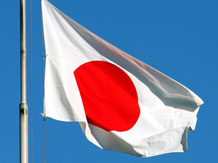DIPP notifies 100% FDI in more financial services The commerce and industry ministry notified 100 percent foreign direct investment in ‘other financial services’ carried out by NBFCs.
The move will help attract foreign capital into the country. “The government has liberalised its FDI policy in Other Financial Services and non-banking finance companies (NBFCs), the DIPP said in a press note.
Other financial services will include activities which are regulated by any financial sector regulator – RBI, SEBI, IRDA, Pension Fund Regulatory and Development Authority, National Housing Bank “or any other financial sector regulator as may be notified by the government in this regard,” it said.
Such foreign investment would be subject to conditionalities, including minimum capitalisation norms, as specified by the concerned regulator or government agency, it said.
The press note, however, did not specify the sectors which have been opened up for automatic route. The present regulations on NBFCs stipulate that FDI would be allowed on automatic route for only 18 specified NBFC activities after fulfilling prescribed minimum capitalisation norms mentioned therein.
In the Budget 2016-17 Speech, Finance Minister Arun Jaitley had announced about this liberalisation.
Currently, 100 percent FDI through automatic route is permitted in 18 NBFC activities including merchant banking, under writing, portfolio management services, financial consultancy and stock broking. In 2015-16, foreign direct investment in India grew by 29 percent year-on-year to USD 40 billion.
Source: http://www.moneycontrol.com/news/economy/dipp-notifies-100-fdimore-financial-services_7829901.html





